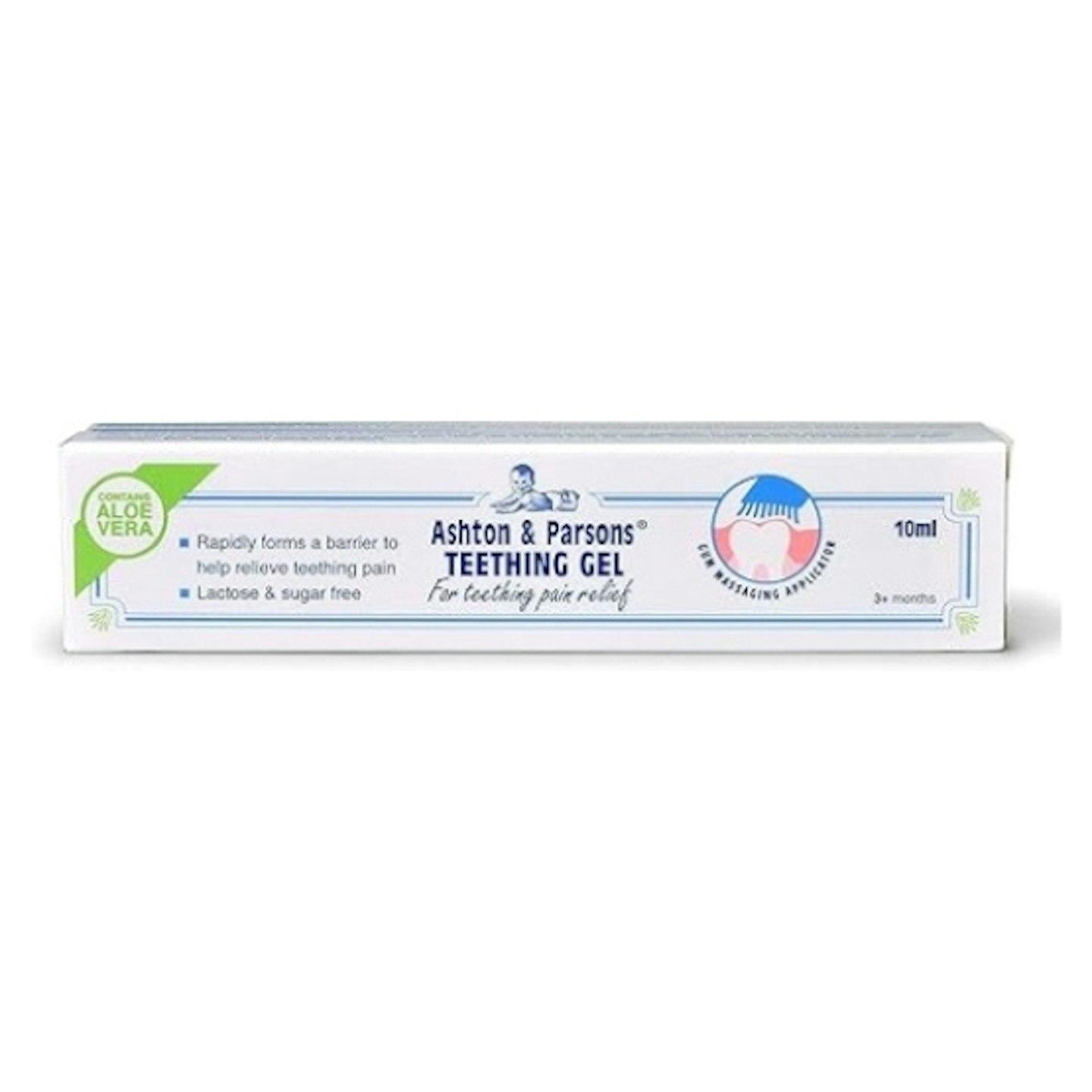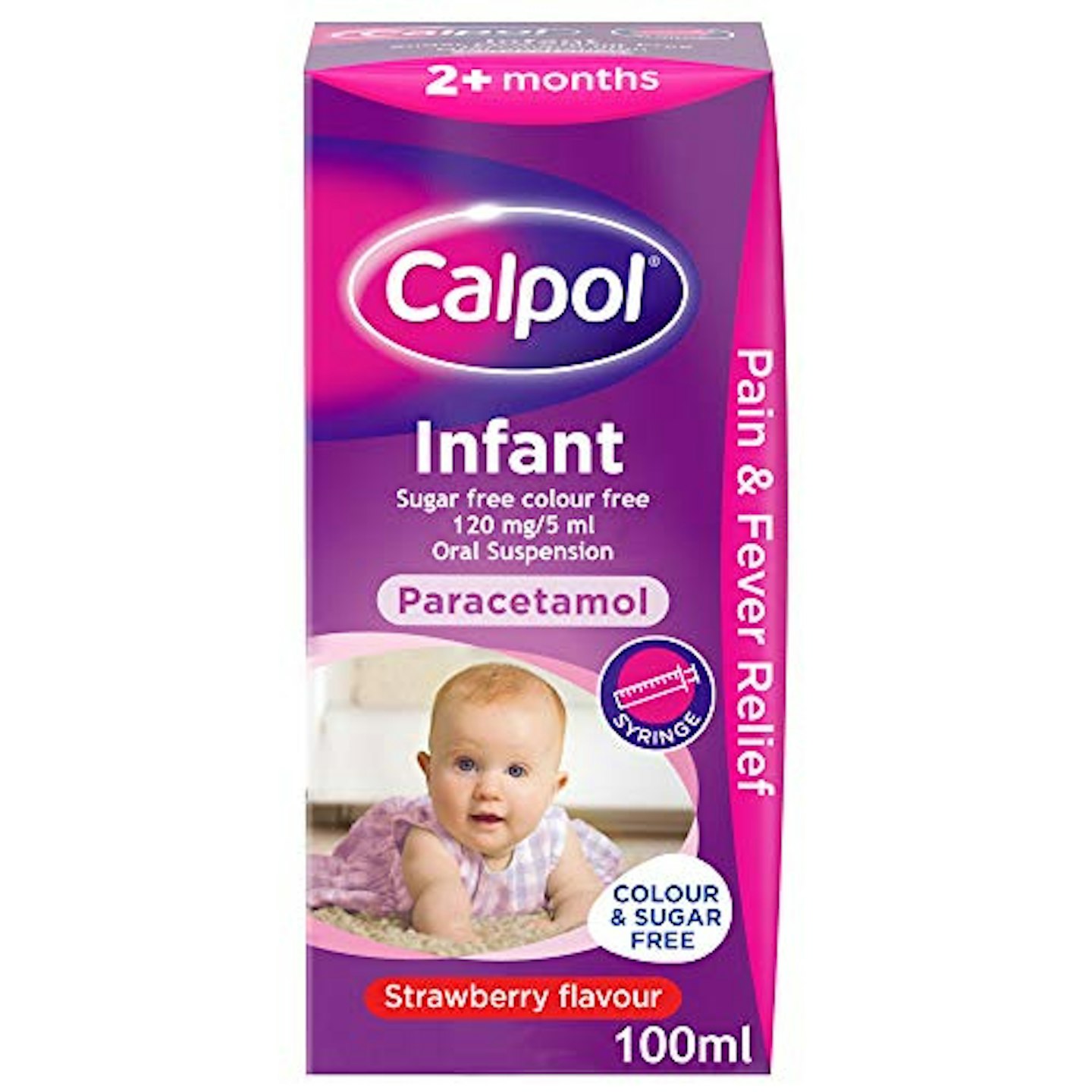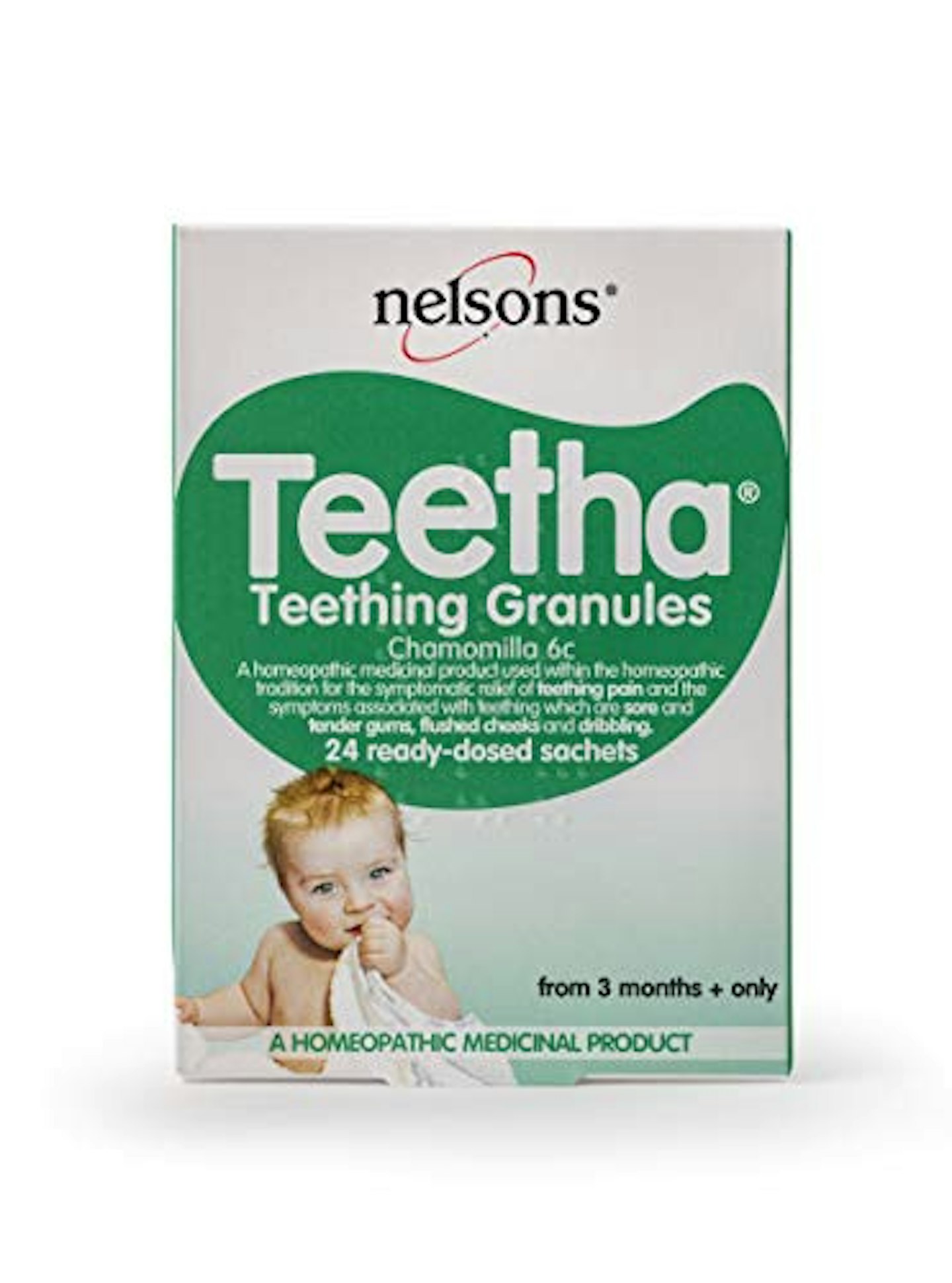From teething powders to gels, necklaces to toys, there are plenty of remedies that promise to soothe your baby’s gum pain during teething – but what is the right form of pain relief for your baby?
The teething process can be a long and painful journey for your baby, and they’re likely not to have their full set of 20 baby teeth until they’re 2 years old – that's a long time to be teething for.
Teething is a huge milestone for your baby, and it won’t be long until they have a full set of baby teeth, but until then, they’ll be quite irritable and uncomfortable for some time. While some teeth might cause a run of restless nights, others will pop up one morning without warning. Whichever you find, there are lots of ways that will help your baby when they need it, and the secret is to experiment and mix and match your methods with each new tooth to find what really works.
The type of pressure that eases the pain of a sharp little incisor might be very different from what works for a chunky molar. And what soothes a grumbling peg a month before it pops up won’t be the same as what helps the pang as it cuts through the gum. So buy a few teethers and let your baby experiment to find which one works right now.
As well as teethers made from hardwood through to soft rubber, aim for flat, round, smooth, and knobbly surfaces. Find a teether that features terry towel fabric, too, and make sure there are different shapes so there’s something that will reach even if that troublesome tooth is right at the back of his little mouth.
Powders and granules
These contain a natural pain reliever to ease discomfort, and they easily dissolve in the mouth. They are sugar-free, but always check the label if your baby is lactose intolerant, as some contain this.
Teething gels
These contain a mild anaesthetic to numb the gum. Choose a sugar-free gel. If your baby is under four months old, check with your pharmacist first.
Paracetamol
Infant paracetamol is best for relieving mild to moderate discomfort before a tooth comes through. And when she is actually cutting a tooth, infant ibuprofen may be more effective as it reduces inflammation.
With all pain relief, consult your GP after a couple of days if the discomfort hasn’t eased.
Ask the expert
We spoke to @themummydentist aka Dr Jemma, an NHS family dentist and clinical teacher in Paediatric Dentistry, to find out what she thought about teething powders and granules.
'With regards to homoeopathic medication, the current NHS stance is “there's been extensive investigation of the effectiveness of homoeopathy. There's no good-quality evidence that homoeopathy is effective as a treatment for any health condition.”
'And the NICE guidance for management of teething states, “Do not recommend the use of homoeopathic teething tablets or gels or herbal medicines (such as teething powders). If parents/carers choose to use these products, advise them to follow the manufacturer's dosage instructions and to avoid any unlicensed products.”
'So, as you can see, as a health professional, I can’t say that teething powders or granules have any proven effect. They may work as a placebo by providing a distraction for the baby from the taste or by counter pressure applied gently to the gums using a finger or teething toy.'
'It's important for parents to remember teething is a normal process. But if you do think your child is struggling, it's a good idea to exclude an alternative diagnosis/cause for the symptoms.' Says Jemma.
'Simple self-care measures - such as cooled items (cloth or foods), a gum massage using a teething toy or clean finger, chewing to distract the baby, comforting baby, and removing excess drool from the delicate facial skin, all help to soothe teething pain. You could also consider paracetamol and/or ibuprofen to provide symptom relief in infants three months of age or older if the self-care measures have not helped.
'You could also try teething gels. Just remember, over-the-counter topical oral lidocaine-containing products for infant teething are only available under the supervision of a pharmacist.'
So in summary, expert Dr Jemma says there is no evidence that teething powders and granules help in any way at all to soothe teething, and any benefits that come from teething are likely to be from a placebo effect.
'What parents should be mindful of before giving their toddler teething powders or granules is that some products contain lactose, so it's important to be aware of whether your child is intolerant. Also, this is a type of sugar, and some products may contain sucrose (another sugar), which could be a risk factor for tooth decay if applied directly and repeatedly to the baby’s mouth. Some even contain alcohol so it's also important to check the minimum age advised, and if used, do not exceed the maximum dose.
-
Thinking about taking your tot for their first dental checkup? Check out Dental Check by One here.
Ask #mumtribe
We asked our group of real mums what they thought of baby teething powders and granules and if they worked for their little ones.
Fiona Davison-Dundas
Ashton and Parsons teething powders are brilliant, really easy to apply, and work within minutes.
Rach Griffiths
We have used Ashton & Parsons for both children, and they work effectively for a short while. Although they didn’t seem to work on our 11-month-old, we ended up using the teething liquid instead. The powders are easy to apply & the small sachets are great for popping in your bag. 😊
Katie Nicole Chapman
We used Ashton & Parsons, they worked for about five minutes and then didn’t again think it was more the taste distracted him. 😂
Tracy Boyd
I found Teetha worked really well for my oldest daughter along with Anbesol liquid. My youngest is teething so I’ll be getting some more Teetha!
Clare Morris
We used the powders, too, and they were great, but we loved Dentinox gel and Anbesol fluid. The fluid was the best thing going and it worked immediately and lasted for hours as it went straight into the gums.
A firm favourite with our Mumtribe mums, this powder claims to be a gentle, natural, traditional remedy to relieve babies' teething pain. It contains Tincture of Matricaria, which is extracted from German chamomile flower heads and is suitable for babies over 6 months.
Nelsons Teetha is a homoeopathic remedy formulated for the soothing and calming relief of the symptoms of teething
Teetha comes in granule format in 24 sachets.
Claiming to be for the relief of baby teething and colicky pain, it's made from soothing chamomile root and is suitable from birth upwards.
Don't fancy the teething granules? You can also get Teetha in this teething gel, a good alternative if you're not sure about powders.

Our favourite Ashton & Parsons is also available in a teething gel, which rapidly forms a barrier. Also, lactose and sugar-free, a great choice.

Of course, we can't leave out Calpol, with sugar free paracetamol for gentle pain relief. Perfect for 2+ months and comes in strawberry flavour.
More from Motherandbaby.com
-
Why not join thousands of mums-to-be and click here to start your very own Amazon baby wish list! They're absolutely free to create and perfect to send to friends and family to make sure you're getting the baby products you really need!
-
Did you try teething powders with your baby? How did you find them? Let us know on Mother&Baby's Facebook, Instagram or Twitter!
-
Mum reveals clever dummy hack to soothe baby's teething pain
-
Join #MumTribe here - our exclusive Facebook group, just for you and all your mum friends!





